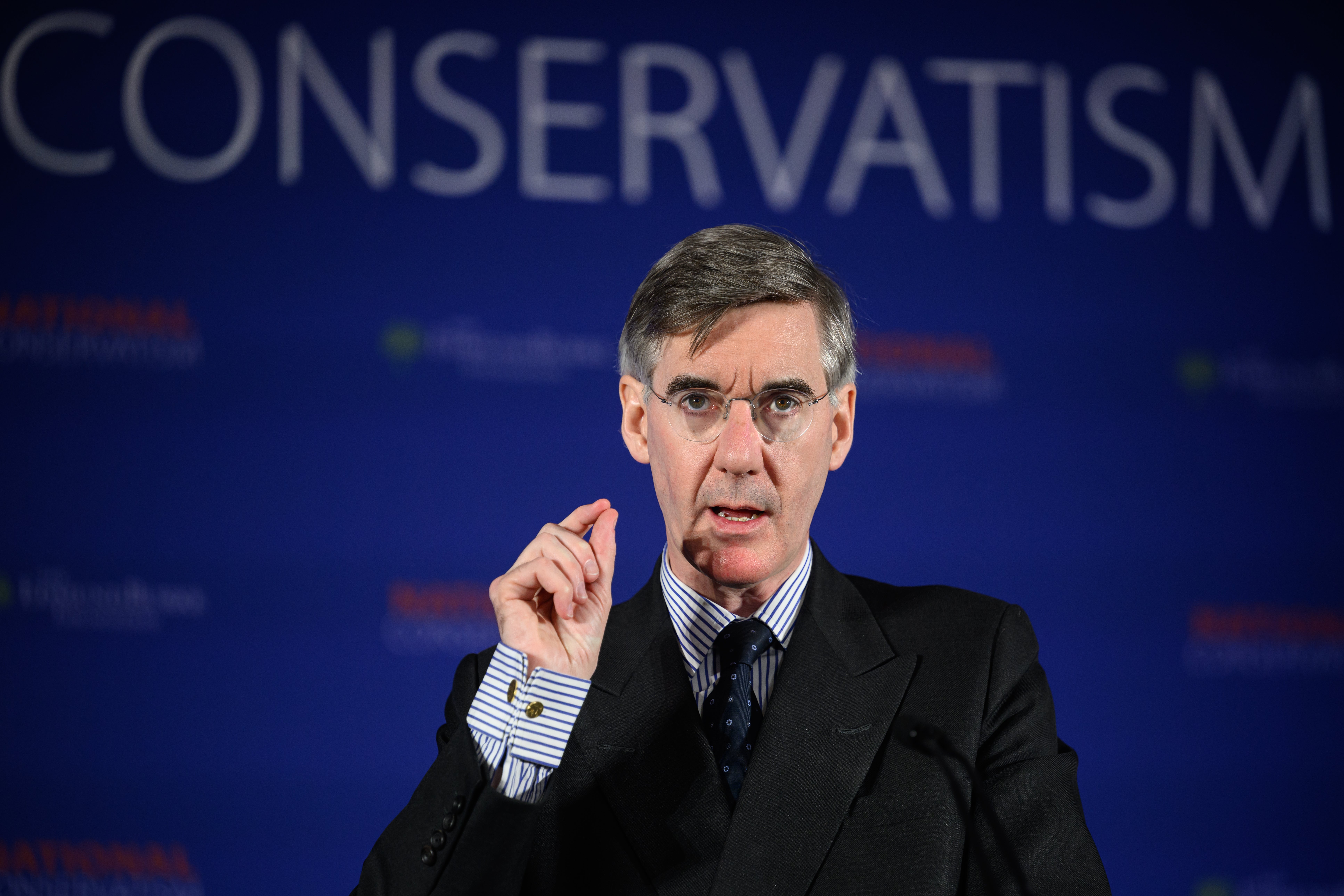Revealed: The government guidance being used to ban speakers
The advice sets out the process for staff to ensure guest speakers uphold the impartiality of the civil service, writes Archie Mitchell

The government has bowed to pressure from campaigners to publish guidance being used to bar speakers from civil service events.
An 11-page, 2,700 word document sets out the process for staff to ensure guest speakers uphold the “integrity, honesty, objectivity and impartiality” of the civil service.
Critics of the guidance argue it has been used to “no-platform” or “cancel” speakers with whom the government disagrees.
But the government says the guidance is necessary to ensure speakers being booked are “sensible” and uphold the neutrality of the civil service. The rules were drawn up under Jacob Rees-Mogg as Cabinet Office minister.
It was published in the House of Commons library after requests by Labour MP Justin Madders. Mr Madders, a shadow business minister, told The Independent: “Whilst we agree with the premise that government shouldn’t give a platform to extremist views the devil is always in the detail.
“The risk is that this policy could be used to silence anyone critical of the government so we do really need to know how it is operating in practice and in particular who has been banned as a result of it.”
So what does the guidance say?
It is designed to cater to four key aims: to block speakers expressing “extremist views”; avoid reputational damage to the civil service; ensure speakers are “not campaigning or influencing government policy” and uphold impartiality.
It is “particularly” focused on ensuring impartiality, which the guidance states may mean “conducting a background check”. The focus on impartiality also means that when attending events civil servants are “not to be critical of government policy or ministers” and should not “ask questions/make comments in a way that are politically partial”.
As part of the “research” civil servants are supposed to do on speakers, they are asked to view five to 10 pages of internet search results on the person. The aim of the search is to identify anyone who has waged a “sustained campaign” against government policy or made “personal attacks” on ministers and officials.
Civil servants are also expected to vet social media profiles, corporate publications, media and news articles. “It is recommended to review a period of up to five years,” the guidance states.
Civil servants are then expected to run through a seven-point checklist, which concludes by asking if it is possible to run certain events without particular speakers.
What do critics say?
A prominent critic of the guidance is Dan Kaszeta, an associate fellow at the world’s oldest defence think tank Rusi, who was banned from a conference sponsored by the government.
He was due to speak at the Chemical Weapons Demilitarisation conference last week, but was uninvited after officials identified “material that criticises government officials and policy” on his social media.
Mr Kaszeta, an expert in chemical weapons, had suggested Mr Rees-Mogg is “the Grinch” and “dry cleans his underwear”. He also called former culture secretary Nadine Dorries “an idiot”.
An email from the government body the Defence Science and Technology Laboratory, which organised the conference, told Mr Kaszeta it had “no choice” but to uninvite him.
Mr Kaszeta told The Independent: “I am a private citizen. The civil service code does not apply to me and if I want to call Jacob Rees-Mogg a wazzock I am well within my rights.
“It has no bearing on what I was going to talk about.
“It is also an assault on my professionalism, the idea that I cannot compartmentalise and be impartial. It is b******s.”
Mr Kaszeta said he does not want an apology, but wants the policy withdrawn because it will deprive the public of expert speakers.
The email Mr Kaszeta received said the decision was made under “rules introduced by the Cabinet Office in 2022”. The Cabinet Office said the email was worded incorrectly and sent in error, adding that the decision was made based on different guidance.
What does the government say?
The Cabinet Office says the civil service code requires political impartiality, which means some activity is restricted compared with the general public.
Cabinet Office minister Jeremy Quin told MPs this month: “Taxpayers’ money should not unwittingly be used to pay for speakers linked to abhorrent organisations or individuals who promote hate or discriminatory beliefs, which could bring the civil service into disrepute.
And a government spokesman told The Independent: “Checks are carried out to make sure speakers are suitable for the intended audience and that sessions will be in line with civil service impartiality.”
Has anybody else been ‘banned’?
Kate Devlin, who specialises in artificial intelligence, told The Independent she had been due to speak at an event at a major UK government department about science, technology, engineering and mathematics (Stem) but had her invitation revoked last week.
Dr Devlin, an academic at King’s College London, said she received an email saying the ministry had blocked her talk because she had “made a criticism of government policy via social media”.
The email, seen by The Independent, stated it would not allow speakers with historical social media material criticising the government.
Mr Quin said the number ofpeople banned will be “very few”, but that the government does not hold a central list of them.






Join our commenting forum
Join thought-provoking conversations, follow other Independent readers and see their replies
Comments